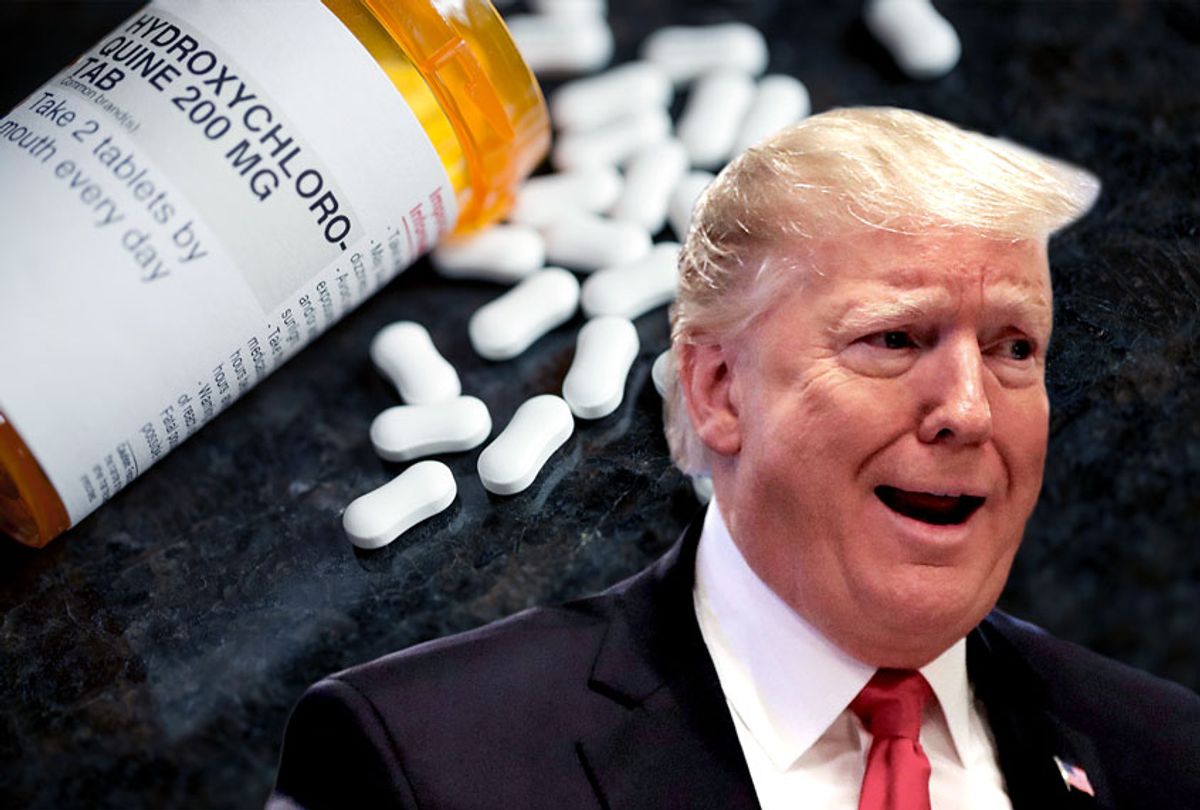Pharmaceutical executives have publicly spoken out against President Trump's executive orders aimed at reducing drug prices, but several CEOs in the industry have told shareholders that they are "not expecting any impact" from the president's largely symbolic moves.
Trump has touted the orders repeatedly even though experts say his proposals cannot be implemented through executive orders alone. Trump's insistence that he has cracked down on drug prices have been boosted by statements from pharmaceutical companies, whose executives balked at a meeting with the president in response to the orders last week.
But at least two executives told investors on earnings calls last week that they don't think the orders will amount to much.
Sanofi CEO Paul Hudson dismissed the executive action as a "lot of talk" on an earnings call last Wednesday. Hudson said he "is not expecting any impact from these conversations this year."
"Of course, with pre-election ... it's a very convenient subject matter," he added.
Eli Lilly CEO David Ricks went further, telling investors on Thursday that he does not expect any federal action on drug pricing this year. In concert with Trump's executive orders, Sen. Chuck Grassley, R-Iowa, chair of the Senate Finance Committee, introduced a bipartisan bill that would save taxpayers billions on drug costs and out-of-pocket expenses. Rep. Frank Pallone, D-N.J., who chairs the House Energy and Commerce Committee, also introduced a bill that would reduce drug prices.
"Grassley reintroduced a version of his bill to try to make one last push. I believe his chairmanship is ending, in any case, at the end of this Congress. So it's understandable why he's doing that," Ricks said. "I don't think that that package has much of a chance to advance."
Ricks added that he is likewise not concerned about the House bill or Trump's orders.
"The most likely scenario is that these [executive orders] can't take force and don't take force prior to a new presidential term, a new Congress sitting and that Senate Finance doesn't go anywhere either nor does HR 3," he said. "I think that's sort of the probable planning scenario."
Government watchdog groups said the comments reflect an understanding that the president's orders were all for show.
"The drug company CEOs made the mistake of saying the quiet part out loud: Trump has no intention of actually implementing policies that would meaningfully help patients or risk hurting the pharmaceutical industry's bottom lines," Eli Zupnick, a spokesman for the progressive government watchdog group Accountable.US, told Salon. "His executive orders, which are unlikely to be implemented this year and wouldn't have meaningful impacts on drug prices even if they were, are nothing more than last-ditch publicity stunts to distract people from the fact that he hasn't come close to delivering on his promises to reduce the prices of prescription drugs."
Trump signed the four executive orders last month.
"I'm not willing to wait any longer," he declared. "We're doing things that nobody thought could be done."
But the orders are "unlikely to take effect anytime soon, if they do so at all," The Washington Post reported, because experts say Trump's proposals cannot be implemented through executive order.
"If they're simply ordering [the Department of Health and Human Services] to continue with its rulemaking process, the executive order isn't really accomplishing anything," Rachel Sachs, a law professor at Washington University in St. Louis told the Post.
One executive order was aimed at speeding up a proposal that would allow states and wholesalers to import drugs from Canada. Another is aimed at tying some Medicare drug prices to those paid in other countries. The third claims to end the widespread use of rebates to insurance middlemen from government-run programs like Medicare. The fourth requires pharmaceutical companies to provide discounts to thousands of health programs that serve low-income patients.
Some groups that have advocated for lowering drug prices rejected the orders as an empty gesture because Trump lacks the authority to fully enact the proposals.
"These Executive Orders are not about policy, they're about politics," Margarida Jorge, the campaign director for Lower Drug Prices Now, told the Post. "The only reason for President Trump's rekindled interest in lowering drug prices is his dwindling poll numbers, and realization that our country's senior citizens are abandoning him thanks to his bungled handling of the coronavirus crisis."
The orders come as Trump continues to push to overturn the Affordable Care Act, which would leave tens of millions without health coverage, strip pre-existing condition protections, and raise drug prices and premiums. And while Trump has claimed that drug prices have already gone down under his leadership, more than 4,000 drugs saw price increases averaging 21% in 2019 alone.
"We shouldn't be giving the administration credit for now moving, three and a half years into the game, when we could have actually had policies that would have been implemented and would have resulted in more Americans being able to access the drugs now," Ameet Sarpatwari, assistant director of Harvard Medical School's Program on Regulation, Therapeutics and Law, told NPR. "Clearly what this speaks of is a bit of desperation as to the president's sinking in the polls and needing to show that he is doing something about a campaign commitment from four years ago, on which there hasn't really been much action."

Shares